The Long Road to State Companies Super-holding
The plan for a super-holding for state-owned enterprises dates back to the New Order era. The SOEs Ministry will be replaced by a giant corporation.
maaf email atau password anda salah
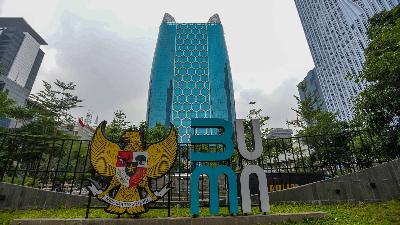
The plan for a super-holding for state-owned enterprises dates back to the New Order era. The SOEs Ministry will be replaced by a giant corporation.

With the Supreme Court’s judicial mafia, when one branch is lopped off, another 10 grow in its place. It needs to be comprehensively cleaned up.

The Supreme Court dismissed three judges suspected of accepting bribes in the Ronald Tannur case. This adversely impacts efforts to improve the judiciary.
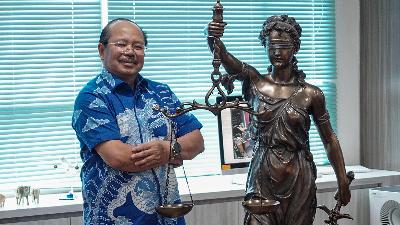
Judicial Commission Chair Amzulian Rifai on the corruption in judicial institution involving judges.

Driven by corporate demand, helicopter business opportunities continue to grow. Operators are increasingly expanding their fleets.

There is an increasingly real threat to Indonesia’s biodiversity. It cannot be overcome through empty slogans at international forums.
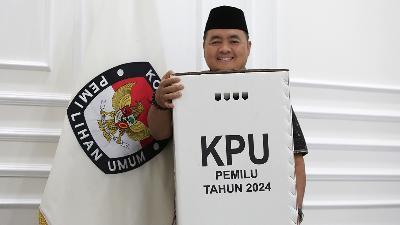
KPU Chair Mochammad Afifuddin on turbulence within his institution following the dismissal of Hasyim Asy’ari, and the Constitutional Court’s decision on the regional head elections.
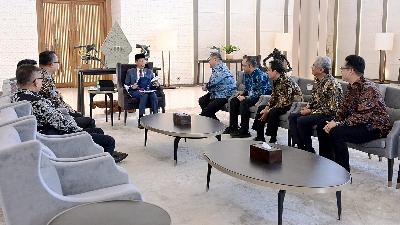
Various parties from the National Police Chief to the State Palace are accused of interfering in the KPK leadership candidates selection process. The candidates are divided into four clusters.
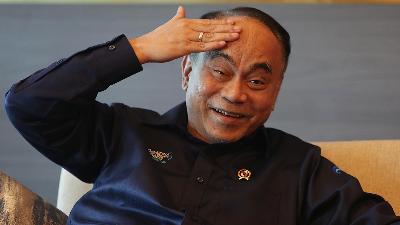
Tempo’s interview with Minister of Communication and Informatics Budi Arie Setiadi about Jokowi’s campaign before the end of his tenure.

As President Jokowi's term neared its end, instructions were given to promote the government's achievements, and billions of rupiah in contracts were offered to the media.
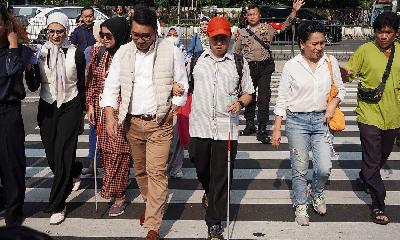
Jakarta governor and deputy governor candidates promise improvements in inclusive public transportation.
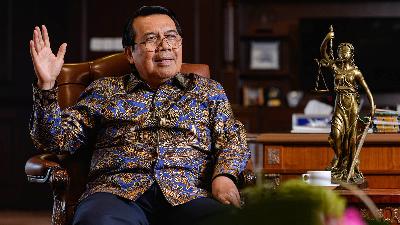
Supreme Court Chief Justice Muhammad Syarifuddin uses artificial intelligence to handle cases. Case brokers continue to be a threat.
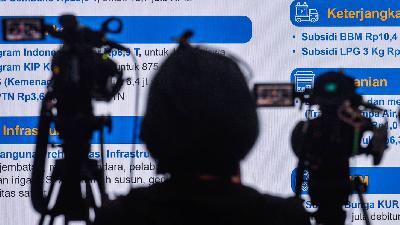
Media companies are experiencing upheaval due to the rapid changes in the business landscape. The industry is moving towards a new equilibrium.

Using a variety of pretexts, the political parties replace elected legislative candidates. This is a betrayal of the people’s choice.
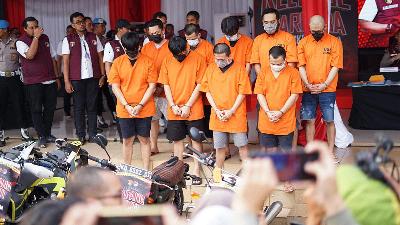
Hendra Sabarudin’s drug network distributed methamphetamine from Tarakan prison starting in 2017, allegedly aided by police and prison guards.

The government plans to dredge 17.6 billion cubic meters of sea sand and sediment, altering the landscape and destroying marine life.
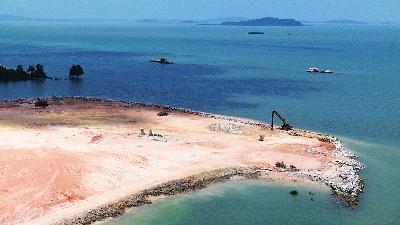
The government designated a number of areas as zones for cleaning sediment and sea sand.

Anindya Bakrie ousts Arsjad Rasjid from the position of General Chair of the Indonesian Chamber of Commerce and Industry (Kadin). The Palace’s support shifted.
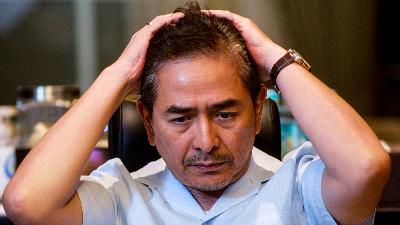
Anindya Bakrie ousted Arsjad Rasjid as the Chair of the Indonesian Chamber of Commerce and Industry (Kadin). The organization is becoming like a political party and enjoys large funds coming in from overseas.

Gubernatorial candidates are trying to win over the votes of Anies Baswedan supporters in the Jakarta regional election. Jokowi reportedly shifted his support.

Pramono Anung and Ridwan Kamil shed light on the dynamics surrounding their appointments as Jakarta gubernatorial candidates.

Police uncover baby trafficking syndicate operating in Java-Bali since 2023. Five babies were already sold.
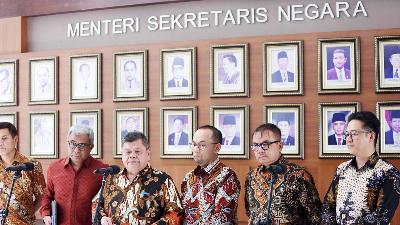
News summary on the conflict of interest of KPK leadership candidates and 44 ministries in Prabowo’s government.
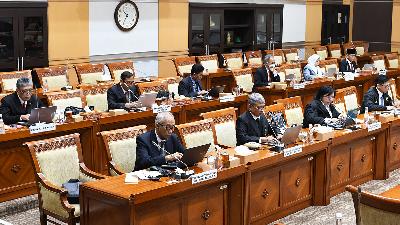
Commission III of the House of Representatives rejected all the Supreme Court judge candidates proposed by the Judicial Commission. The rejection allegedly was due to their favored candidate failed to pass.
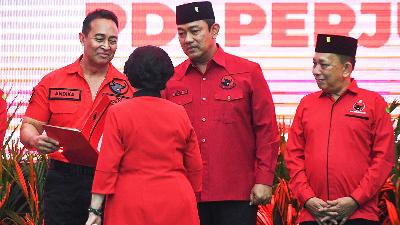
The Indonesian Democratic Party of Struggle (PDIP) strives to counter candidates supported by the Palace. It is an early projection for the 2029 General Elections.
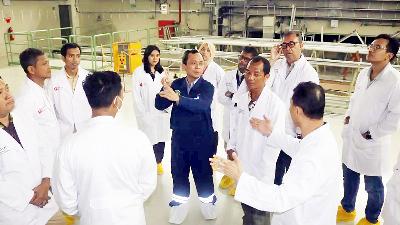
BRIN is designing the Peluit-40 nuclear reactor to replace diesel power plants, claiming it to be safer.
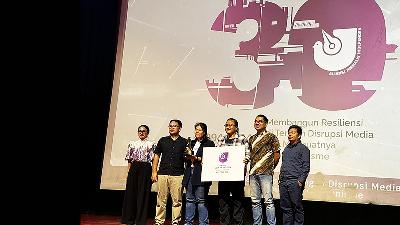
The Bocor Alus Politik podcast receives the Udin Award that we dedicate to our viewers and readers.
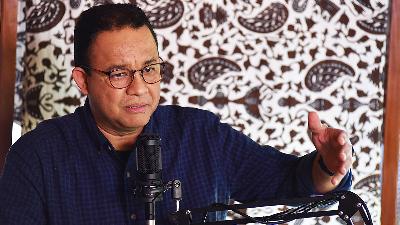
An exclusive Tempo interview with Anies Baswedan regarding his chances to run in the Jakarta regional head election.

Jokowi and Prabowo’s coalition are maneuvering to thwart Anies Baswedan’s candidacy in the Jakarta regional head election. Cabinet posts are being offered as inducements.

Tommy Hermawan Lo’s name emerges following the mention of Mr. T in online gambling that involves human trafficking case. He is a director at a casino management company.
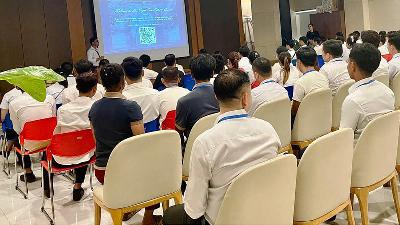
Victims of human trafficking for online gambling and scamming in Cambodia claimed of being forced to work 12-hour shifts and being beaten. Recruitment is still ongoing.

The battle in the presidential election is set to continue in regional head elections. The PDI-P is determined to challenge President Joko Widodo’s candidates.
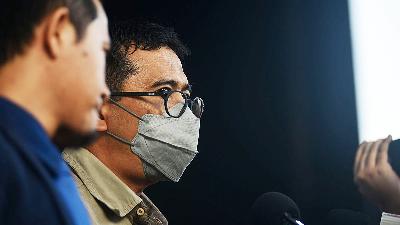
Personal protective equipment corruption suspect, Budi Sylvana, denied inflicting up to Rp300 billion of losses to the state. He revealed the roles of other officials in the case.
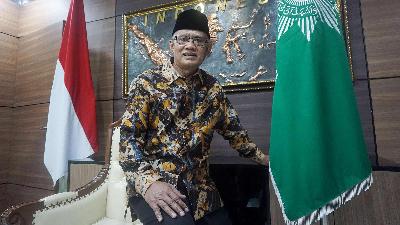
Muhammadiyah follows Nahdlatul Ulama’s step to accept mining concession offer from the government. Muhammadiyah General Chair Haedar Nashir explains about it.
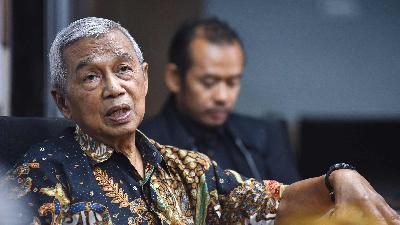
Muhammadiyah accepts the government’s mining concession offer. Many members are against it. Busyro Muqoddas, Chair of Muhammadiyah’s Law and Human Rights Council explains.

Muhammadiyah cadres and administrators are divided in their response to the mining concession. There are whispers from the government and the entrepreneurs.

Retno Marsudi dismissed the idea that the government is merely meddling foreign affairs. She emphasized that Indonesia is a trusted partner on the international stage.
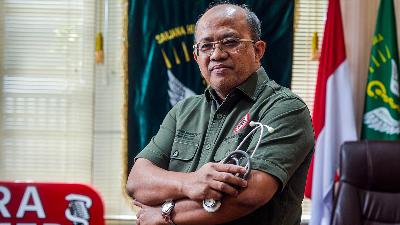
Chair of IDI, Mohammad Adib Khumaidi, discusses the polemic over the plan to allow foreign doctors to practice in Indonesia. He emphasizes stringent regulations are necessary.
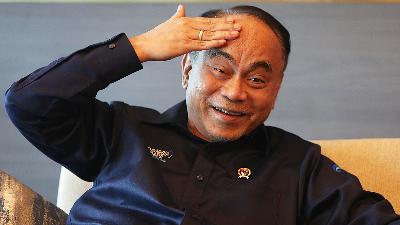
Communication and Informatics Minister Budi Arie explains the cyberattack on the Temporary National Data Center. He dismisses allegations of negligence.

Infinite Earth responds regarding the revocation of Rimba Raya Conservation’s ecosystem restoration permit.

There will be a wave of layoffs at Tokopedia as a result of inefficient practices. This is the result of government policy rife with conflicts of interest.

The PDI-P is preparing to replace Hasto Kristiyanto after he was questioned by the KPK in the Harun Masiku case. They are wary of the Palace’s interference.
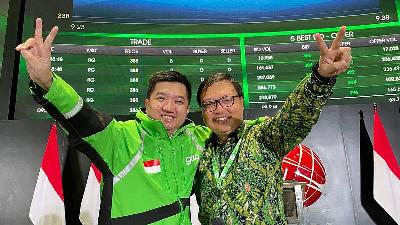
The founders of GoTo and Tokopedia sold their shares. New investors now have control of ownership.

Tokopedia made significant cuts in its workforce following its business consolidation with TikTok. A consequence of inefficient business operation.

Muhammadiyah’s business networks cover various sectors, from education to financial services. It seeks to create a closed economic ecosystem.
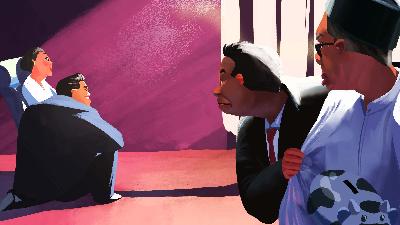
Muhammadiyah withdrew trillions of rupiah from Bank Syariah Indonesia. It was the accumulation of various problems, from operational matters to appointment of commissioners.
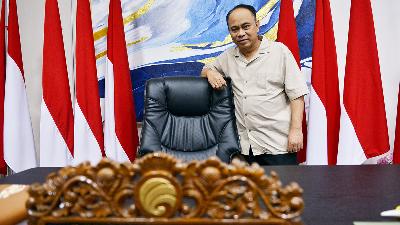
Communication and Informatics Minister Budi Arie Setiadi talks about the polemic over the planned revision of the Broadcasting Law and the Starlink Internet service.

Narendra Modi is likely to serve his third term as the Prime Minister of India. His campaigns are based on populism and religion.
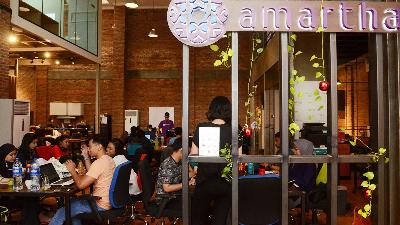
The fintech lending business is increasingly losing steam. Returns continue to decline while fund owners are opting for other investment portfolios.

Tourism and Creative Economy Minister Sandiaga Salahuddin Uno assures that the tourism fee will not be imposed on plane tickets.
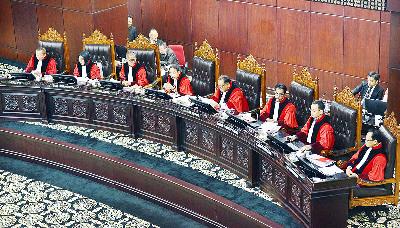
The Constitutional Court rejected lawsuits disputing the results of the 2024 presidential election. The option of disqualifying Gibran was discussed in a meeting of the judges.
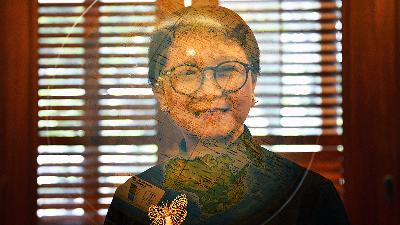
Foreign Affairs Minister Retno Marsudi explains the Gaza war and the Iran-Israel conflict with its impact on Indonesia’s economy.
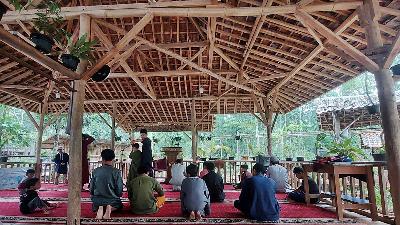
Islamic boarding schools (pesantren) cannot be closed even if they do not have a license from the government. There is no protection from the Ministry of Religious Affairs if legal problems arise.
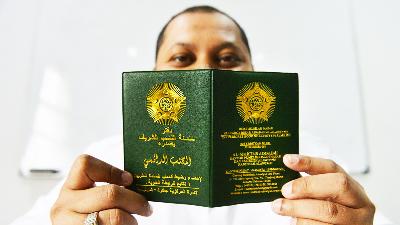
The Rabithah Alawiyah organization is in charge of recording and preserving the line of descent of the Alawiyyin in Indonesia. Seven books from Yemen serve as their guide.
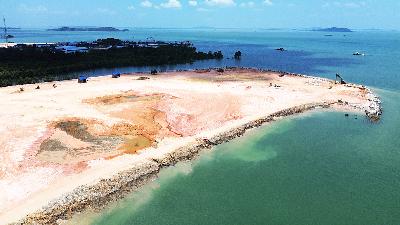
Several companies are applying for permits to utilize sediment, including sea sand. Large corporations use landfills for land reclamation areas.

Indigenous people are taking legal action against the President and the DPR for delaying deliberations of a bill. It has taken second place to the interests of investors.
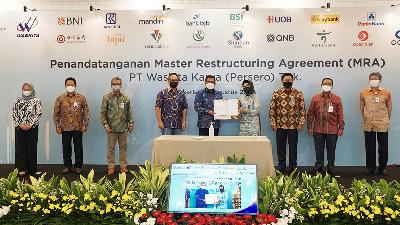
State banks stop distributing loans to state construction companies. Government assignment projects are burdening banks.
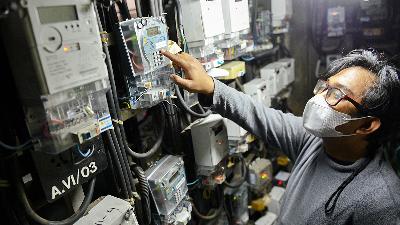
The government opens the option of switching energy subsidies for the free lunch program. This threatens poor households.

The government issues a regulation to develop the game industry. There will be a special funding agency.
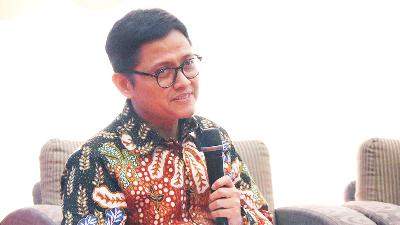
Discussions of the Asset Recovery Draft Law is stagnating in the DPR. It is key to preventing money laundering.

TikTok Shop’s acquisition of Tokopedia changes the Indonesian business map. It is not clear how small and medium enterprises will be protected.
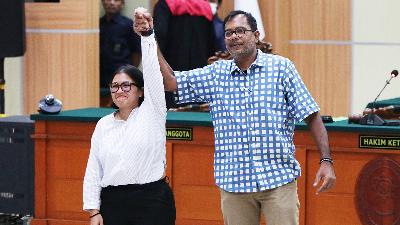
The prosecutor persists in filing a cassation against the acquittal of Haris Azhar and Fatia Maulidiyanti. It is a threat to the freedom of expression.

GoTo CEO Patrick Waluyo reveals the story behind the selling of Tokopedia shares to TikTok. How much profit did GoTo get?

The integration of TikTok Shop with Tokopedia will reinforce GoTo’s business. Indonesia’s e-commerce competition landscape is changing.

The presidential and vice-presidential candidates are relying entirely on gimmicks to exploit the emotions of the people. This moves the campaign away from substantive discussions.

Do the presidential candidates succeed in attracting young voters with social media gimmicks?
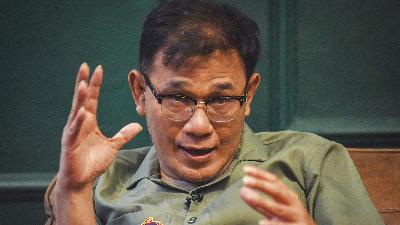
Budiman Sudjatmiko persuades other activists to support Prabowo Subianto. He claims he is not motivated by money.
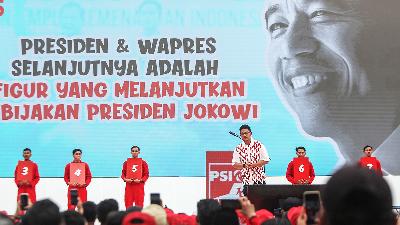
How does the Indonesian Solidarity Party get its funding? Is the aid from conglomerate bosses like Djarum’s owner true?

Presidential Chief of Staff Moeldoko is writing regarding his alleged interference in electric vehicle policy over Wuling’s SNI certification.

Post-Firli Bahuri, the Corruption Eradication Commission (KPK) is still walking backward toward its grave. A radical reform is needed.

The presidential candidates’ campaign teams are an illustration of the type of government they would form if elected. Businesspeople have a central role.
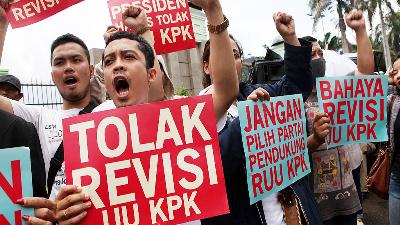
The Corruption Eradication Commission is no longer independent ever since it became part of the executive body. The fruit of the revised KPK Law.
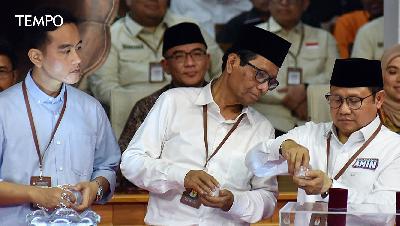
In Indonesia, presidential candidate debates are planned as bogus performances. There is no in-depth discussion of the issues.

Yet again, a member of the Supreme Audit Agency is involved in corruption. The system for selecting these state auditors is very poor.
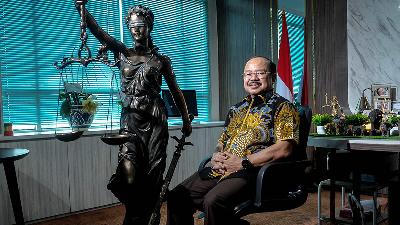
Judicial Commission Chairman Amzulian Rifai explains the boundaries of his authority in dealing with judges, and the Judicial Commission Bill.
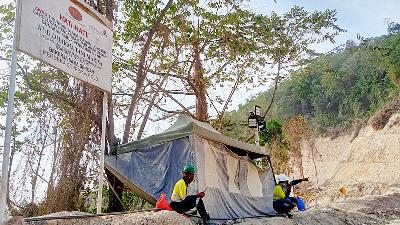
Sandiaga Uno and Garibaldi Thohir’s company is in conflict with local miners. The amount of compensation is considered inadequate.

Having no democratic legitimacy, Gibran Rakabuming Raka must withdraw his candidacy for the vice-presidency.
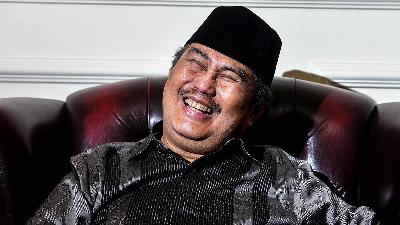
Tempo's special interview with MKMK Chairman Jimly Asshiddiqie regarding the dismissal of Anwar Usman as Chief Justice of the Constitutional Court.
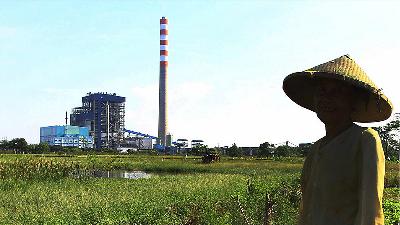
The program to put coal-fired power plants (PLTU) into early retirement is hampered by funding problems. As grants are stuck, the state budget must be disbursed.

Nepotism is the close relative of corruption and dictatorship. The Indonesian Independence Proclamation places nepotism as a threat to independence.
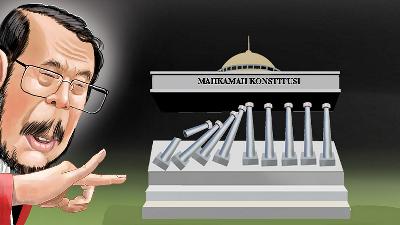
Constitutional Court Chief Justice Anwar Usman is reportedly maneuvering to lower the minimum age limit for presidential and vice-presidential candidates, paving the way for Gibran.
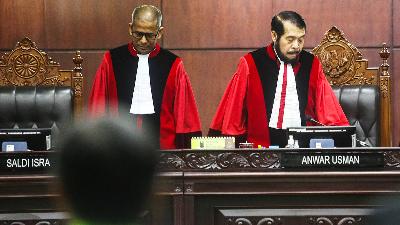
The Constitutional Court reportedly already made a decision in favor of a lawsuit regarding the minimum age requirement for presidential and vice-presidential candidates. The issue is rife with conflicts of interest.

Carbon trading is simply a way to mitigate climate change. The main aims are the energy transition and environmental protection.
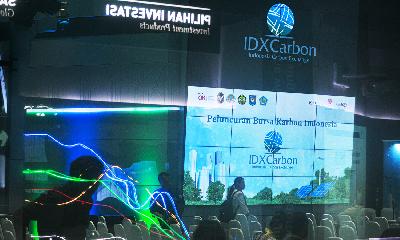
The Indonesian Stock Exchange established four carbon trading mechanisms. There were 27 transactions in three schemes in the initial sale.

Presidential candidates’ supporters are creating unfavorable atmosphere in the build-up to the 2024 general elections with them more inclined to speak about rivals’ weaknesses than promoting their champions’ profiles.

The 2024 presidential candidates are competing to garner support from retired generals. This perpetuates the militaristic nature of Indonesian politics.

The plan from the OJK to introduce carbon units as securities could lead to problems. Carbon trading no longer means a reduction in emissions.

The three soldiers who allegedly killed a civilian should be tried in a criminal court. The Military Courts Law needs to be revised.
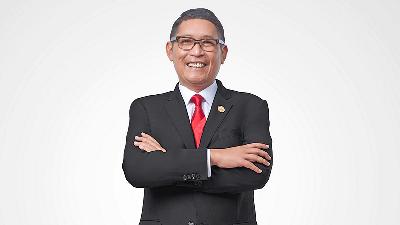
The OJK regulates carbon exchanges as a securities trading platform. How will the OJK prevent greenwashing in the carbon exchange?

The news in our media is problematic. Why is that?
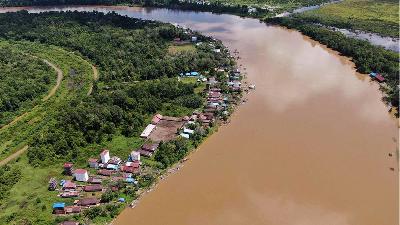
Voluntary carbon trading has stopped since 2021, due to upside down policies.
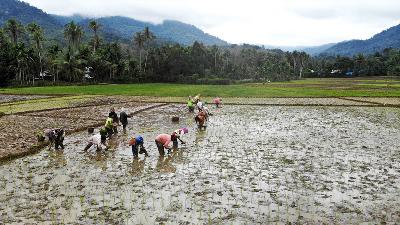
Individuals and companies are already implementing carbon trading in the voluntary market. But no price standard has been set.
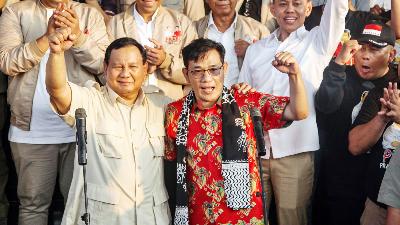
News summary, from the dismissal on Budiman Sudjatmiko to Food Estate.
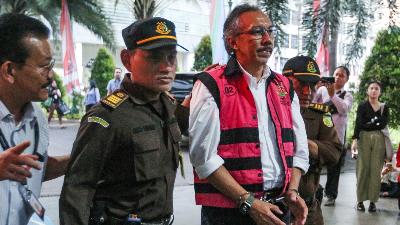
Former Director-General of Mineral and Coal, Ridwan Djamaluddin, is named as suspect in the Mandiodo Block nickel corruption case.
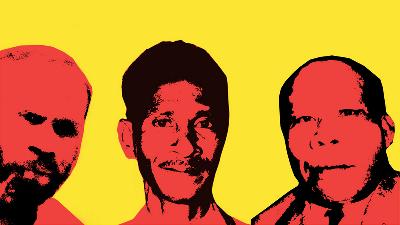
Why did the prominent figures from Papua fail to bring the Papuans to support the Republic of Indonesia?
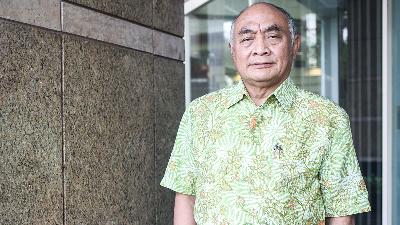
The government faces difficulties accommodating kidney donors and recipients. The need for kidney donors is high, but the supply is very limited.
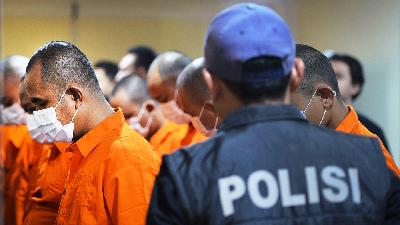
The police exposes Indonesian kidney trafficking network in Cambodia. The victims are enticed through social media.

The government removed the conditions for electric motorcycle subsidy recipients. It will be made available to everyone.

The National Genome Center set up in 2018 is gone. Does it change into the Biomedical and Genome Science Initiative of the Health Ministry?

A lower credit rating makes the United States government to charge higher interest rates. It naturally spreads to other countries’ securities, including Indonesia.

With a 1.49 percent annual growth rate, Indonesia's current population of more than 250 million is expected to surpass that of the United States by 2043, possibly becoming the third most populous country after China and India. Despite a national family planning program in place since 1967, Indonesia continues to struggle with various sociocultural constraints that prevent it from becoming more effective and efficient. Such issues emerged during the recent International Conference on Family Planning in Nusa Dua, Bali.
On the sidelines of the biennial conference, Tempo English contributing editor Cory Rogers spoke to Dr. Babatunde Osotimehin, the current executive director of the United Nations Fund for Population (UNFPA). Dr. Osotimehin, a Nigerian national who is serving his second term as head of UNFPA, shared his views on how empowering women through sexual and reproductive health rights is a key to unlocking Indonesia's development potential. Excerpts of the interview:

The Executive Director of United Nations Population Fund (UNFPA), Doctor Babatunde Osotimehin, who visited Jakarta for the World Economic Forum on East Asia last week, led a discussion on how Indonesia can capitalize on its large youth population. Sadika Hamid, Amanda Siddharta and Edward Stephens from Tempo English interviewed Osotimehin, the former Nigerian Health Minister.

The 2025 State Budget’s Financial Note illustrates Prabowo Subianto’s financial policies. There is hope for economic improvements.

The 2025 State Budget accommodates several of Prabowo Subianto’s programs. Lobbying efforts are underway to ensure the smooth implementation of these priority programs.

The government is anticipating a rise in the number of Covid-19 cases due to the spread of the Omicron variant in 57 countries. Flights are canceled and quarantine regulations tightened. Rules on public activities during the holidays have changed.
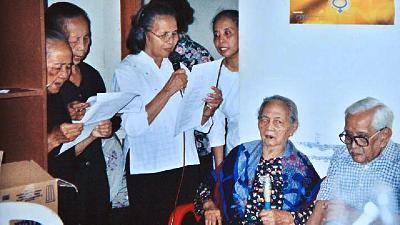
Former chairperson of the Indonesian Women’s Movement left the history of 1965 behind upon her release from prison. Umi Sardjono did not say much about the bloody event of September 30, 1965.
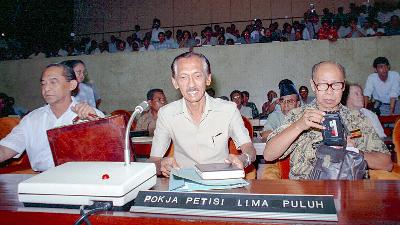
After being replaced as National Police Chief, Hoegeng Iman Santoso spent his days painting and playing music. His political activity with the Petition of 50 created a lot of difficulties in his life, including being prevented from traveling abroad.

TIDORE, the sea, the old European fort: there are still remains on this tiny, clean and calm island. Here, 500 years ago, history and the world map shaped each other, tricked each other.

The 35,000-megawatt electricity program will almost certainly miss its deadline due to a lack of funding and poor planning.

ERDHIKA Securities analyst Adrian Priatna regards the hospital business as an investment that cannot lose money. He calculated that, over the last five years, the four hospital share issuers listed on the Indonesian Stock ExchangeSiloam, Mitra Keluarga, Omni, Mayapadaall grew between 15 and 25 percent.

The two-day 'National Symposium on Dissecting the 1965 Tragedy: A Historical Approach' last week got nationwide and international attention.
It was, after all, the first time that the government hosted a forum to openly discuss and debate the mysterious and dark events of 1965.

One by one on that last evening in October 2015, the amateur performers introduced themselves. Within a very short time, the audience at the Yogya Cultural Center began to feel thoroughly amused by what they were watching.
The show was entitled 100% Yogyakarta. It did not feature any professional actors. All those up on the stage were ordinary people from around the city, including a parking attendant, a grave digger, a street tough, a housewife, a transvestite, a neighborhood association head, a teacher, and the head of a hardline Islamic organization.

Lying in state at the Adi Jasa funeral home on Tuesday, December 15, Ben Anderson was clad in a brown-colored Madura batik shirt. "That's my batik shirt," said Sugito, the driver who always accompanied Anderson since 2009 whenever he toured East Java. Sugito wiped his tears and tenderly touched the edge of the laced cloth covering the coffin.
Anderson arrived in Surabaya with his close friend, Edward Hasudingan, a.k.a. Edu, five days earlier. Both met in 2004 when Edu studied at Ithaca College in the United States. They stayed at Hotel Santika Pandegiling in Surabaya.

The International People's Tribunal 1965 a hearing last week on crimes against humanity in Indonesia following the 1965 political upheaval held in the Dutch capital of The Hague, impacted three distinct groups. The first are the condemned and the vilified, senior military officers and government officials, and even a few historians clinging to tired old slogans about 'latent dangers of communism'.
The second group are those who regard the tribunal as little more than a game, not worth their time. The third group are people who believe that the tribunal is an effort to record the facts, which in turn would lead to pressure aimed at a United Nations resolution.

The 2015 Frankfurt Book Fair ended in mid-October. As the guest of honor at the world's largest book fair, Indonesia chose the slogan '17,000 Islands of Imagination' to lead its presentation.
It was a huge success, although the team only had two years to prepare for the event, compared to the five to six years other countries had.

Hana Salomina Hikoyabi is an activist from Papua, who uses her bureaucratic savvy to get things done. She was vice chair of the Papua People's Assembly during the 2006-2011 period and is currently the head of the Regional Development Planning Board for Jayapura Regency. Hana founded the tabloid Suara Perempuan Papua (Voice of Papuan Women), to publicize issues related to violence against women, the need to acknowledge people living with acquired immune deficiency syndrome (AIDS), for information on access to justice and the conservation of Papua's mega-biodiversity.
The tabloid has been influential in changing perceptions on gender in Papua, and she is not giving up on the idea that women should continue aiming for 30 percent representation in the legislature. For her unrelenting advocacy to give voice to the women's plight in Papua, she was presented with the 2015 SK Trimurti Award by the Indonesian Alliance of Independent Journalists (AJI) at the beginning of September.

Revolution is never careful. There is no revolution carried out carefully, meticulously, and protected from going astray. Going astray is what revolution is about. Revolution does not set out to follow what has been laid out by the power that preceded it.
This is why August 17, 1945, was a revolutionary moment: on that morning the birth of a new country was declared. The rulers of the Netherlands Indies, so neat and repressive, had fallen. The Japanese military regime, so strong and cruel, had also lost. They were no more. Power relations in Indonesian changed radically.

Singapore has come a long way since its independence on August 9, 1965. During its early years, the gross domestic product (GDP) per capita was a mere US$500 and unemployment exceeded 10 percent. Like other developing countries, there were racial tensions, housing shortages, slums with poor sanitation, a high crime rate and even corruption. There were also hostile neighbors. Malaysia expelled Singapore from its Federation and Indonesia just ended its armed 'konfrontasi' with the Malaysian Federation, which at that time still included Singapore. Lastly, there was the departure of the British colonial government and its Royal Navy, which provided not only security, but also helped to drive the local economy.
Fast forward half a century later and Singapore's GDP per capita (at purchasing power parity) stands above US$56,000, the third highest in the world, with a mere two percent unemployment rate. Today, as visitors land at Singapore's Changi airport, one of the world's most efficient and modern airports, they will see a neat row of gleaming wide-bodied aircrafts belonging to Singapore Airlines, the nation's flag carrier, often voted the world's best airline. Driving from the airport, they will notice the country's efforts to turn itself into a 'garden city', with lush shady greenery along its multi-lane highways. Crossing the Kallang River visitors enter an ultra-clean and orderly modern cosmopolitan city with a state of the art broadband connectivity. Further west of the glittering city skyline is Asia's busiest container port and beyond that, is the world's third largest oil refinery complex.

The Southeast Asia (SEA) Games is not a new arena for Lim Teck Yin, 54, CEO of the Singapore Sports Council (SSC), the statutory board under the Ministry of Community Development, Youth and Sports of Singapore. This lead agency is tasked with responsibility to develop and cultivate sports for the nation. Brig. Gen. (ret) Lim Teck Yin won six gold medals in water polo at Southeast Asia's biggest sporting event. "Those six gold medals I received consecutively in the SEA Games from 1985," he told Tempo.

President Jokowi's 2015 revised government budget is his first, and, as such, is interesting to get a more detailed view of his policy spending priorities, how he expects to implement them and, more importantly, how to fund them. But, understanding where the government is spending its money this time is critical because the recent cut in fuel subsidies allows the government some real spending power to make a difference. A quick glimpse into the 288-page document, shows three areas that particularly stand out. They are infrastructure with a maritime bent, food security and social services.

Yet, this book measuring 14 centimeters x 21 centimeters is a fascinating sign of fresh creativity in the world of art, exposing the young and upcoming Indonesia artist,30-year-old Syaiful Aulia Garibaldi. He has morphed science with art in a dictionary of a newly invented language named Terhah. Words are denoted by characters derived and imagined from the changing shapes of developing micro-organisms seen through his microscope. The dictionary is the second in a series and has 1,500 words on 64 pages. It also has Indonesian and English translations in Roman script.
Syaiful new invented language, Terhah, he says is inspired by various words expressing an idea or a thought that combines with his artistic imagination. He had studied printmaking at the experimental division of the School of Fine Arts and Design at the Bandung Institute of Technology (ITB), after a stint of agronomy at the University of Padjadjaran's School of Agriculture, also in Bandung.

FOR many Indonesians, 2015 began on a positive note: subsidized fuel prices had fallen with global oil prices. Premium gasoline dropped from Rp8,500 to Rp7,600 per liter, and automotive diesel oil went from Rp7,500 to Rp7,250 per liter.
With that in mind, President Joko Widodo was optimistic 2015 would bring improvements for the Indonesian economy, with the government able to cut subsidies and free up funds. "This money can be diverted to build infrastructure such as reservoirs, irrigation, toll roads and railways outside of Java," Jokowi said.

The world has seen yet another horrific terrorist attack. This one came in Peshawar, Pakistan, when seven members of the Pakistani Taliban broke into an army-run school on Tuesday morning and went on a killing spree.
The incident took the lives of 145 people, including 132 students aged 12 to 16. One survivor, Salmannot his real namewas in a careers guidance session in the auditorium with his classmates when the gunmen stormed in. "Someone screamed at us to get down and hide below the desks," the 16-year-old boy said at the trauma ward of Lady Reading's Hospital in the city. "Then one of them shouted, 'there are so many children beneath the benches, go and get them'," he said, as quoted by AFP.

Manggi Habir*
As we close 2014 with a weak rupiah, a high domestic interest rate and a slowing economy, the only bright spot seems to be a new government with a new style of leadership that provides hope that changes will come. And, maybe the year-end is a good time to make an assessment on what we can learn for 2015. Let me start with the rupiah, as its weakness throughout the year does reflect alot of what is wrong with our economy.
On the rupiah's weakness, we must differentiate on the source of weakness where we have little control of and where we can do something. As it is always easier to blame others for our problems, the world's two largest economies would be high on the list of external sources of our currency's problems.
The US economy, because it is the only major economy that is growing well due to its loose monetary policy, has the US dollar becoming more attractive. But the Fed realizing that good things do not last forever, is concerned of potential inflation ahead and plans to raise interest rates, making the US$ even more desirable. Just remarks that it plans to raise rates has lead to massive conversions to US dollars worldwide. This year, the US dollar has strengthened against nearly all other currencies. However, as the emerging market currencies lack deep markets, the weakness is more apparent, which unfortunately includes our rupiah.

President Joko Widodo attended his first Association of Southeast Asian Nations (ASEAN) Summit in Naypyidaw, Myanmar, on November 12-13. He asserted during the meeting that Indonesia was ready to support the ASEAN Economic Community (AEC) free market in 2015. "Indonesia will not let itself be merely a market," he said.
According to Joko, an increase in inter-ASEAN trade will be the key to AEC success. "Within the next five years, I hope the value of trade between ASEAN member states can reach at least 35-40 percent," added the president. As of now, inter-ASEAN trade volume is 24.2 percent. He also urged other member states to work together in doubling the ASEAN GDP, from US$ 2 trillion to US$ 4 trillion, and reducing the poverty rate to 9.3 percent by 2030.
Rahmat Pramono, the permanent representative of Indonesia to ASEAN, said that Indonesia's readiness to face the AEC is only 82 percent. He sees the integration as an opportunity for economic growth. Sri Adiningsih, an economist from Gadjah Mada University said that Indonesia has been ASEAN's main support because of its central location in the region. "Our trade balance in the area, be it oil or non-oil, experienced surplus for a while," she said.

Pending economic problems await Joko Widodo and Jusuf Kalla's administration. In addition to the narrow room for maneuvering the budget, global economic uncertainty will be the economic challenge throughout 2015. Raising subsidized fuel prices is a policy option that must be taken as soon as possible.

Djajeng Pratomo was held at the Dachau concentration camp from 1943 to 1945. The Nazis put him to work as a nurse and carrying corpses.

As the UN's Millennium Development Goals approaches its 2015 deadline, nations are coming together to draft a new global development agenda. Democratic reform within the UN is deemed critical to the process.

Tibetans commemorate the 50th anniversary of a failed rebellion. The Chinese government is more firmly entrenched in Tibet than ever.

Indonesian students in the Netherlands published the 1925 Manifesto, considered to be more important than the Youth Pledge of 1928.

Attempts to bring to trial cases of human rights violations during the 1965 tragedy still have a long way to go. Suharto somehow managed to remain out of the justice system’s reach.

THE Adam Air Boeing 737-400 on the Surabaya-Manado route disappeared somewhere over Sulawesi. Critics put the blame on competing low-cost airfares compromising passenger safety. Ever since 2001 when the budget airline industry took off in Indonesia, the number of air travellers shot up by 130 percent and the number of flights by 26 percent. From 2001-2005 there have been 29 accidents involving national carriers. There were 26 accidents during the previous five-year period. The difference in the number of accidents may not be highly significant, but there is much to be gained from a strict monitoring on the long-term impact of the budget-airline industry.

Cemex plans to sell off its 25.5 percent share in Semen Gresik. Peter Sondakh and Bakrie are reportedly interested.

Commotion at Wiranto-Solahuddin camps across the archipelago increases in anticipation of the July 5 D-Day.

It is not easy to catch Tommy Suharto, the fugitive connected with PT Goro Batara Sakti's property-swap scam who has disappeared for nine months. Greater Jakarta Police's Special Detective Team have ransacked a number of places and tailed many people, but Tommy has proved slippery. The son of Suharto even stopped by his sister's house on July 15 for her birthday party, despite the Cendana area being the police's top priority target area. Just where have the police found Tommy's trail?

After increasing slowly for over a decade, the economic disparity rate has seen a tendency to decline over the past two years. However, this achievement has not seen improvement among the low-income groups. Their purchasing power has weakened. Poor nutrition among expecting mothers, babies, and children under five are signs of poverty. Because child growth and development is not optimal, this upcoming generation will find it difficult to improve family prosperity levels. At the same time, the middle class has seen greater growth. It is no surprise that those who are well-off have made rapid progress, adding to their wealth through land concessions for mining, plantations and infrastructure projects. Meanwhile, poverty has tended to continue around mining areas. Economic growth has not automatically reduced poverty.
Independent journalism needs public support. By subscribing to Tempo, you will contribute to our ongoing efforts to produce accurate, in-depth and reliable information. We believe that you and everyone else can make all the right decisions if you receive correct and complete information. For this reason, since its establishment on March 6, 1971, Tempo has been and will always be committed to hard-hitting investigative journalism. For the public and the Republic.